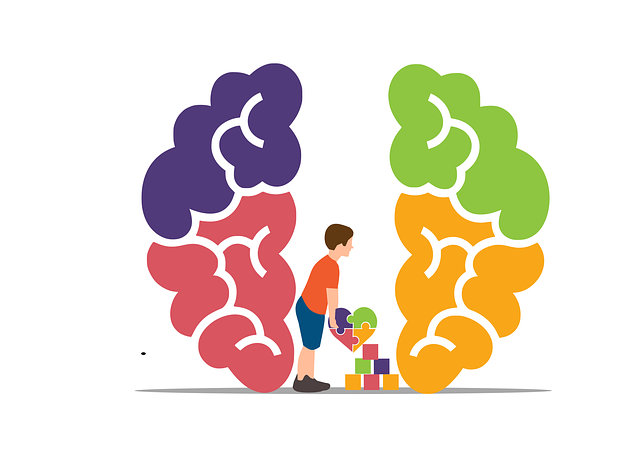La Terapia para Adultos de Idioma Español (SST) es una intervención terapéutica especializada que mejora las habilidades sociales y la comunicación para adultos hispanohablantes con problemas de salud mental. A través de estrategias adaptadas culturalmente y prácticas basadas en evidencia, SST fomenta relaciones positivas, promueve la curación emocional y aumenta el bienestar general, facilitando una mejor calidad de vida. Este enfoque es vital para superar barreras lingüísticas y culturales, mejorando la gestión del estado de ánimo, el apoyo al trauma y la regulación emocional.
Social skills training is a powerful tool for adults speaking Spanish who face mental health challenges. This article explores how structured training can enhance their ability to connect and communicate effectively in various settings. We delve into the benefits, focusing on improved mental well-being, and examine specific strategies tailored for therapeutic environments. Additionally, we highlight resources and therapy options specifically catering to Spanish-speaking adults, emphasizing accessibility and cultural sensitivity in addressing their unique needs.
- Understanding Social Skills Training: Benefits for Mental Health Conditions
- The Role of Language in Social Skills Development for Spanish-Speaking Adults
- Effective Strategies for Social Skills Training in a Therapeutic Setting
- Accessing Resources: Therapy Options for Spanish Speaking Adults with Mental Health Concerns
Understanding Social Skills Training: Benefits for Mental Health Conditions

Social Skills Training (SST) is a type of therapeutic intervention designed to enhance interpersonal interactions and communication abilities. It focuses on teaching individuals with mental health conditions the skills needed for successful social engagement, fostering better relationships, and improving overall well-being. SST benefits a wide range of conditions, including those that impact mood, anxiety, and trauma.
For Spanish-speaking adults, access to therapy in their native language is crucial, ensuring effective communication and understanding. This specialized training not only addresses the symptoms of mental health disorders but also promotes positive thinking and emotional healing processes. By participating in SST, individuals can develop strategies to manage social situations, gain confidence in their abilities, and access trauma support services tailored to their needs, leading to improved quality of life.
The Role of Language in Social Skills Development for Spanish-Speaking Adults

Language plays a pivotal role in social skills development for Spanish-speaking adults with mental health conditions. Effective communication is a cornerstone of therapy for adults Spanish speaking, enabling individuals to express their thoughts, feelings, and needs more clearly. In many cases, cultural nuances and language barriers can impact social interactions, making it essential to address these challenges through specialized services. Therapy tailored for Spanish-speaking adults integrates cultural sensitivity with evidence-based practices, fostering a safe and supportive environment where they can build meaningful connections and enhance their mental wellness.
By focusing on mood management techniques and trauma support services in the context of their native language, therapists can help these individuals navigate social situations more effectively. This approach not only facilitates better understanding but also strengthens their ability to regulate emotions, engage in positive interactions, and ultimately promote mental health recovery.
Effective Strategies for Social Skills Training in a Therapeutic Setting

Social Skills Training is an integral part of therapy for adults with mental health conditions, especially in cases where social anxiety or communication difficulties are present. In a therapeutic setting, therapists can employ effective strategies to enhance participants’ social abilities and confidence. One powerful approach is role-playing, which allows individuals to practice interactions in a safe environment. This technique is particularly beneficial for Spanish-speaking adults who may face additional challenges when navigating social situations due to cultural differences or language barriers.
Additionally, group therapy sessions can foster a supportive community where members learn from each other’s experiences. Encouraging open discussions and collaborative problem-solving helps individuals develop coping mechanisms for social stressors. Integrating public awareness campaigns and educational materials on mental wellness can further enhance these training programs. For instance, Mental Wellness Journaling Exercises provide individuals with tools to reflect on their experiences and track progress. Self-care practices, tailored to the specific needs of Spanish-speaking adults, should also be incorporated into the curriculum to ensure holistic development.
Accessing Resources: Therapy Options for Spanish Speaking Adults with Mental Health Concerns

For Spanish-speaking adults navigating mental health challenges, accessing appropriate therapy is a vital step toward healing and recovery. Many communities offer specialized services tailored to this demographic, ensuring cultural sensitivity and effective communication. One such option is seeking out therapists who are fluent in Spanish and have experience treating similar populations. These professionals can provide therapy in their native language, fostering a safe and comfortable environment for clients.
In addition to individual therapy, group sessions led by knowledgeable facilitators can be beneficial. Such groups often incorporate elements of mindfulness meditation, crisis intervention guidance, and self-care practices, all while offering peer support and a sense of community. These resources are invaluable in helping Spanish-speaking adults develop coping strategies and enhance their overall mental well-being.
Social skills training, tailored to meet the unique needs of Spanish-speaking adults with mental health conditions, offers a promising avenue for enhancing their overall well-being. By combining evidence-based practices and culturally sensitive approaches, therapists can create inclusive environments that foster meaningful connections and support. Accessing appropriate therapy options, such as group sessions or individualized programs, enables these individuals to develop essential social skills, improve communication, and integrate more fully into their communities. Embracing cultural considerations in mental health care is a vital step towards ensuring effective treatment for Spanish-speaking adults, promoting their recovery, and enriching their social lives.














